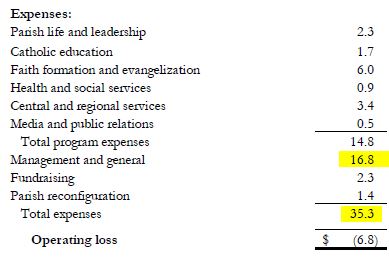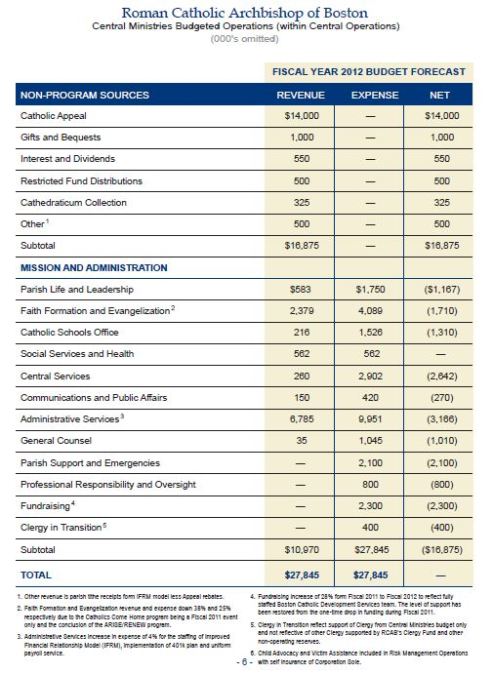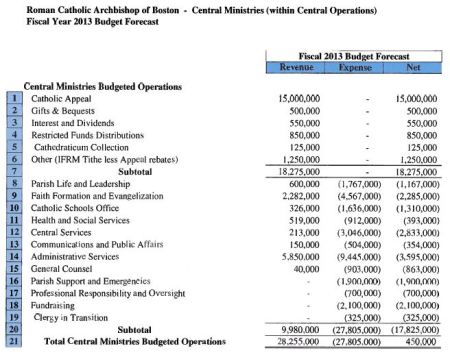Today, we learned that the Cardinal O’Brien of Scotland resigned in the wake of charges he made “inappropriate” sexual advances to four men. In the past week, most people have probably read media reports about a secret dossier claiming there is a ‘gay network’ inside the Vatican. There is speculation–denied by the Vatican–that this news contributed to the resignation of the Pope.
The drumbeat of these troubling reports from across the Atlantic has prompted BCI to tackle two topics that we have avoided for nearly the past 3 years. They are:
i) Does the Boston Archdiocese have a “gay network” of clergy
ii) Why and how is the gay agenda being advanced within the Boston Archdiocese in parishes and Catholic schools with tacit approval by Cardinal O’Malley?
We start our coverage on this topic by publishing in its entirety a document titled,”Crisis and Reform in Boston.” What you are about to read was apparently written between the time when Cardinal Bernard Law resigned (December 2002) and when Bishop Sean O’Malley was appointed Archbishop of Boston (July 2003). We do not know who wrote it or who has seen it. We posted excerpts in January 2011 (“Musings on the Future of the Boston Archdiocese: Episcopal Leadership“) and in August 2011 (“Episcopal Leadership“).
Much of what was described in the document written about ten years ago still seems to apply today. It describes the clerical “black wall”, behind which some priests have surrendered completely to the pagan culture of “gay” identity and behavior. It also describes the author’s view of a “perfect Archbishop of Boston” which also could be criteria for the “perfect next Pope.” We were especially struck by the passage about the archbishop needing to “be the pastor of the pastors” and by the very last sentence: “he must be a passionately effective evangelist because he is first a thoroughly converted disciple of Jesus Christ.”
Crisis and Reform in Boston
(written late December 2002 or winter/spring 2003)
The next Archbishop of Boston will find his particular Church in the midst of a grave crisis of faith and discipline. The public scandals which led to the resignation of Bernard Cardinal Law point to deep and longstanding problems among the priests and people of the Archdiocese, and the nature and magnitude of these problems should be considered in selecting the new pastor of a profoundly troubled Church.
The sketch of life in the Archdiocese of Boston which follows is based largely on anecdotal evidence and the trustworthy testimony of faithful priests and laymen. While this description is necessarily unscientific, it is offered in good faith in the service of understanding the nature and range of the problems the next Archbishop of Boston must confront.
The Present Situation
Clerical Unchastity
The sexual crimes of the priests accused of molesting minors are but a small token of widespread unchastity among the presbyterate. A significant number of priests, both secular and religious, are engaged in regular sexual behavior (most of it homosexual), either with stable sexual partners or in anonymous encounters with strangers met in bars, parks, or through the Internet. Acceptance of such behavior, excused either with a wink and a nudge on the grounds of human weakness or because of rejection of the Church’s teaching on chastity, encourages further unchastity.
Clerical Homosexuality
Many priests in the Archdiocese, certainly a large minority of the presbyterate and perhaps a slight majority of those between 40 and 60, are homosexual men, and many of those have come to understand themselves by reference to their sexual identity as the gay subculture defines it. The open secret of their homosexuality is closely guarded by the silence of a solid clerical “black wall”, behind which some priests have surrendered completely to the pagan culture of “gay” identity and behavior. Many priests socialize only with other active homosexuals, and in this way loose networks of sexually active priests are formed to protect each other from scrutiny.
Clerical Heterodoxy
Widespread rejection by priests of the Church’s teachings on human sexuality, marriage, chastity, birth control, abortion, and homosexuality has not been effectively challenged in Boston, and a culture of “faithful dissent” has taken deep root in the presbyterate. Priests who are no longer in full communion with the Church by reason of their refusal to believe doctrines that must be held (either de fide credenda or de fide tenenda) are nonetheless still holding ecclesiastical offices in which they are charged to teach, sanctify, and govern some portion of the flock. The fact that heterodox priests are not publicly corrected or disciplined encourages more priests to embrace false teaching.
Irish Tribal Clericalism
One under-reported dimension of the scandals of 2002 is the ersatz clericalism found among priests of Irish ancestry. With very few exceptions, both the priests accused of sexual crimes and the bishops who protected them from legal action were all of Irish descent. The instinct to protect members of one’s own “tribe”, no matter what the offense, is a common feature of embattled ethnic minorities, and the effects of this culture in the Archdiocese of Boston cannot be underestimated.
Clerical Mendacity
To protect themselves from accountability for all of the above and other forms of misconduct, many priests habitually lie about almost every part of their lives. The mendacity is then excused with vague incantations about “mental reservation” and “internal forum”, and a vicious cycle is established: unchastity leads to mendacity, and mendacity leads to more unchastity. It should surprise no one that in this poisoned environment prayer ceases, faith collapses, and every form of sinful self-indulgence finds a home. The result is men in the pastoral office who no longer seek to follow the Lord Jesus in the Way of the Cross.
Intellectual Dishonesty
The aberrant behaviors and beliefs described above are not secret. The movement called “Voice of the Faithful” has given a public face to what has existed for at least 35 years: stubborn and organized refusal to believe what the Church teaches about human sexuality. This heterodoxy, however, is described by its proponents in one way or another as “faithful dissent” i.e., something a Catholic can embrace without in any way damaging his communion with the Church. There are many engines of this dissent, but the Jesuits and theology faculty of Boston College must be ranked among the chief architects of this intellectual dishonesty. They must be challenged directly.
Ecclesial Crisis
The nature and authority of the episcopate is being seriously contested by various parties in the Archdiocese, and the next Archbishop will inherit a presbyterate and a flock in which leading voices implicitly or explicitly reject his authority to teach, sanctify, and govern the Church in Boston. The refusal of the Board of Directors of Catholic Charities to obey the explicit instructions of Bishop Richard Lennon about accepting funds from “Voice of the Faithful” is a small but significant indicator of the sort of rebellion now taking hold in the Archdiocese. The priests and lay people who lead “Voice of the Faithful” are consciously dedicated to a vision of the Church which is not Catholic, and the next Archbishop must be prepared to remove from ecclesiastical office all persons who cannot (in truth and without evasion) make the Profession of Faith and the Oath of Fidelity.
Bait and Switch
To reform the Church in Boston, the next Archbishop must fully understand what this crisis is and is not about. The crisis confronting the Church was most emphatically not caused by pedophilia; it was caused by massive infidelity of priests and bishops to the promises of their Baptism and their Ordination. Psychological counseling is not the remedy for sin and infidelity to the Gospel, and the Church, therefore, cannot be reformed by sending more priests to St. Luke’s Institute and other centers of psychotherapy. Radical conversion to Christ is the only way forward.
The Next Archbishop
To Teach, To Sanctify, To Govern
To respond to these problems in Boston, the next Archbishop must be a man
+who grasps that this crisis is about faith in and fidelity to the Lord Jesus Christ. True reform is impossible without a direct challenge to the various false religions now in competition with revealed Truth. The next Archbishop must take nothing for granted and be prepared to engage in the New Evangelization almost as a First Evangelization, beginning with his presbyterate. To do this will require both clear and persuasive preaching of the truth and effective and direct refutation of error.
+whose life is blameless. If there are any scandals or habitual sins in his life, the dissident priests whom he must discipline will find them and use them in the media to destroy him.
+who is not afraid to be hated. Responding to the crisis in Boston will require the effective use of sanctions and discipline, and this will make the next Archbishop a man reviled by some.
+who is not afraid of controversy. There is no way to reform the Church in Boston without public controversy, some of which will be bitter and vitriolic. A man who runs from conflict cannot reform this Church. The Boston Globe will doubtless continue its campaign against Catholicism in various ways, and the next Archbishop must be prepared to be a stumbling block, not a media darling. And the internal opposition from Boston College will be even more crippling to any effort for reform.
+who is a radically obedient disciple of Jesus Christ. An Archbishop who is more conscious of the power and prerogatives of his office than of the dignity of his Baptism will make himself an object of public ridicule. He must be prepared to live a simple, evangelical life and to speak always in clear, evangelical language. The legalistic evasiveness and psychological jargon so common in the public utterances of many bishops can have no further place in Boston.
+who is a priest in every part of his being. An Archbishop who prays and celebrates the Holy Eucharist in a way that draws others into the heart of the Paschal Mystery will lead lasting reform by priestly example. A man without great integrity of life and faith, of personality and action, will not be able to sustain the sacrifices that must be made for genuine reform.
+who is an evangelist. Boston does not need a manager, a financier, or a consultant for an Archbishop; Boston needs a prophetic preacher of the Gospel who can convince other people of the truth of God’s Word because he both knows and believes it himself.
+who is not captive to Irish clericalism. Any priest who is bound to the “tribe” of Boston’s Irish clergy will be absolutely incapable of reforming the presbyterate.
+who is willing to make the Church smaller in order to make it larger. The cancer of dissent has created an (until now) invisible schism which has already made the Church in Boston much smaller than it appears to be. The next Archbishop must be prepared to acknowledge this fact (with canonical sanctions when necessary) and then preach the Catholic faith in its fullness and integrity. For this to happen some institutions may have to be abandoned, and some persons will have to be shown the consequences of their ideas, but absent such honesty, there will be no reform in Boston.
+who understands the essential and intrinsic connections among doctrinal clarity, moral probity, and ecclesial order. The disintegration of ecclesial life now unfolding in Boston is the result of the effective sundering of these three legs of one stool by the guild of dissent among priests, lay catechists, and theologians. Restoring the integrity of ecclesial life, therefore, will require the next Archbishop to restore in public and effective ways the connections among faith, life, and order, and such restoration will be impossible without directly dismantling the guild of dissent.
+who can be the pastor of the pastors. The Archbishop cannot be the pastor of every parish in Boston; he must be the pastor of the pastors, and he must make his highest priority the pastoral care of his priests and the recruiting and training of future priests. To reform the presbyterate, he must be personally involved on a daily basis in teaching his priests…in exhorting them, encouraging them, correcting them, and when necessary reproving them. He must also be directly and personally involved in selecting and forming seminarians for priestly ordination. While he will, of course, need help in such work, these tasks simply cannot be delegated to anyone else.
+who has a clear and authentically Catholic vision of the sacramental economy as a coherent whole and as the essential means for unveiling the eternal Plan of Salvation for God’s people. The liturgical, doctrinal, and disciplinary fragmentation and incoherence of the past thirty years have obscured from sight the intrinsic order and beauty of the sacramental economy and made much more difficult the task of teaching revealed truth. The next Archbishop should be a priest capable of elucidating for his priests and people the internal logic, immeasurable beauty, and divine wisdom of the Logos tou Theou.
Reasons to Hope
The Faithful
The lay faithful of Christ in Boston continue by the hundreds of thousands to “believe and profess all that the holy Catholic Church believes, teaches, and proclaims to be revealed by God”. These people deserve a shepherd willing to make personal sacrifices for the Gospel, and they will respond with heroic generosity and courage to his stewardship if he proves himself to be a fearless preacher and a genuine priest.
Young Priests
Despite the chaos in the Church and in large measure because of the witness of Pope John Paul II, many of the men ordained in the past 5 years are obedient disciples of the Lord Jesus and faithful priests of the Church. These young men will have to assume the burdens of leadership at an early age, and if they perceive in their next Archbishop a true father in God and witness to Christ, they will move heaven and earth to help him reform the Archdiocese of Boston.
Wavering Priests
Notwithstanding the decades of dissent, unchastity, and mendacity, many priests of Boston still hear the voice of God in their conscience and are yearning (even if unconsciously) for a prophet to come and lead them out of slavery to sin. A bold man of God in the Chair of the Archbishop could ignite a divine spark in the hearts of those priests and bring them through conversion back to the grace of their ordination. The witness of such men would be a powerful force for reform.
Kairos
A providential opportunity is at hand in Boston—a rare moment of grace when dissent, confusion, degeneracy, and chaos can be challenged and overcome by the Word of God. For this opportunity to be seized, though, the Church in Boston needs a bishop who is not bound by clerical custom, tribal instinct, or personal fear. Given the causes of the crisis in Boston, business as usual will lead to disastrous consequences. The next Archbishop of Boston can and should be a bold disciple of the Lord Jesus who can bear powerful witness to the Resurrection of Christ and the truth of the Catholic faith; he must be a confident and persuasive teacher of the Gospel and a skillful shepherd of souls. Such a man in Boston, precisely because of the acute crisis and the public attention focused there, could help lead a true and lasting reform of the entire Church in the United States.
The next Archbishop of Boston should not be a “safe” candidate selected by the usual means from among the conventional candidates. Such men are largely responsible for the sorry state of the Church today; one more of that sort will not lead us out of crisis into reform. Boston needs an Archbishop who will teach, sanctify, and govern his people and priests with the courage, conviction, and confidence that come from personal conversion to Jesus Christ and a life-changing decision to follow Him in the Way of the Cross. For true reform to take place, the next Archbishop of Boston cannot be a chancery bureaucrat, an office manager, or a dialogue facilitator who understands his task as the mediation of internal disputes between “liberal” and “conservative” Catholics; he must be a passionately effective evangelist because he is first a thoroughly converted disciple of Jesus Christ.
# # # #
We have heard reports for years about priests speaking in support of “gay marriage,” violating their vows of celibacy by living with men commonly known to be their “boyfriend,” or blessing “gay marriages”–and the complaints are largely ignored by Cardinal O’Malley and the Boston Archdiocese. We know the Cardinal and Schools Superintendent pushed through a policy rooted in deception to admit children of gay parents to Catholic Schools. Furthermore, the Schools Superintendent, paid $341K/year, claims to be unaware of any “gay agenda” and has ignored concerns about the gay agenda in Catholic Schools she has oversight for.
We need to pray fervently for our priests and for the Archbishop of Boston. If you have evidence or specific examples of the existence of a “gay network” of clergy in Boston and/or evidence of how the gay agenda is being advanced within the Boston Archdiocese, please email bostoncatholicinsider(at)gmail.com or contact us here.



 Posted by bostoncatholicinsider
Posted by bostoncatholicinsider 



 BCI was saddened to hear of his passing and we pray for the repose of his soul.
BCI was saddened to hear of his passing and we pray for the repose of his soul.